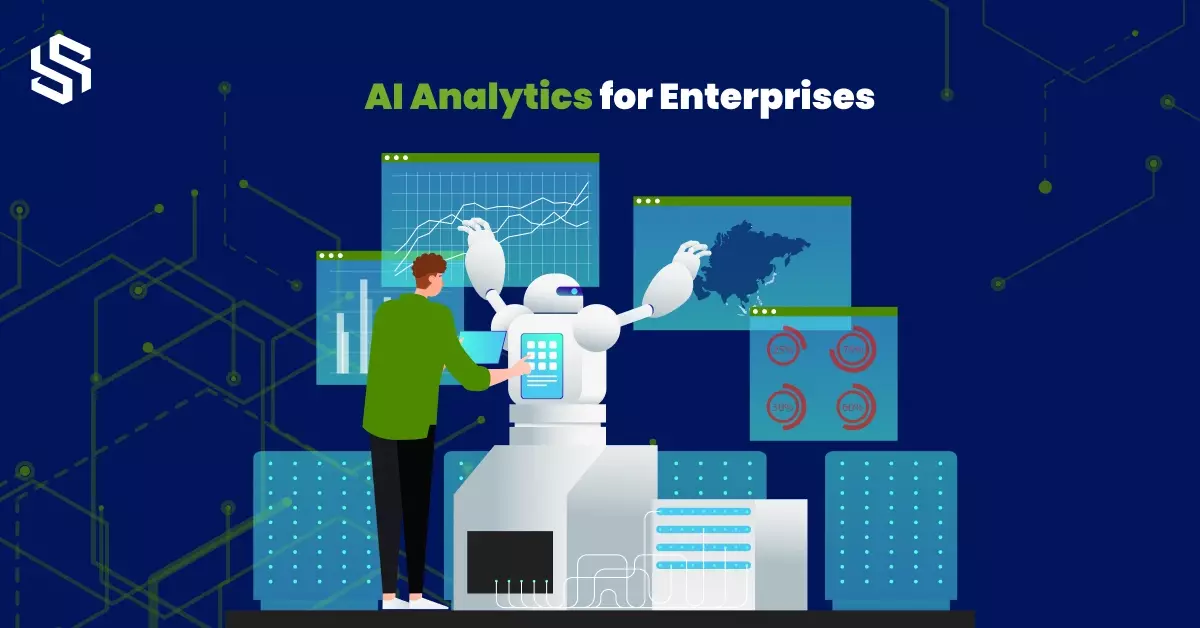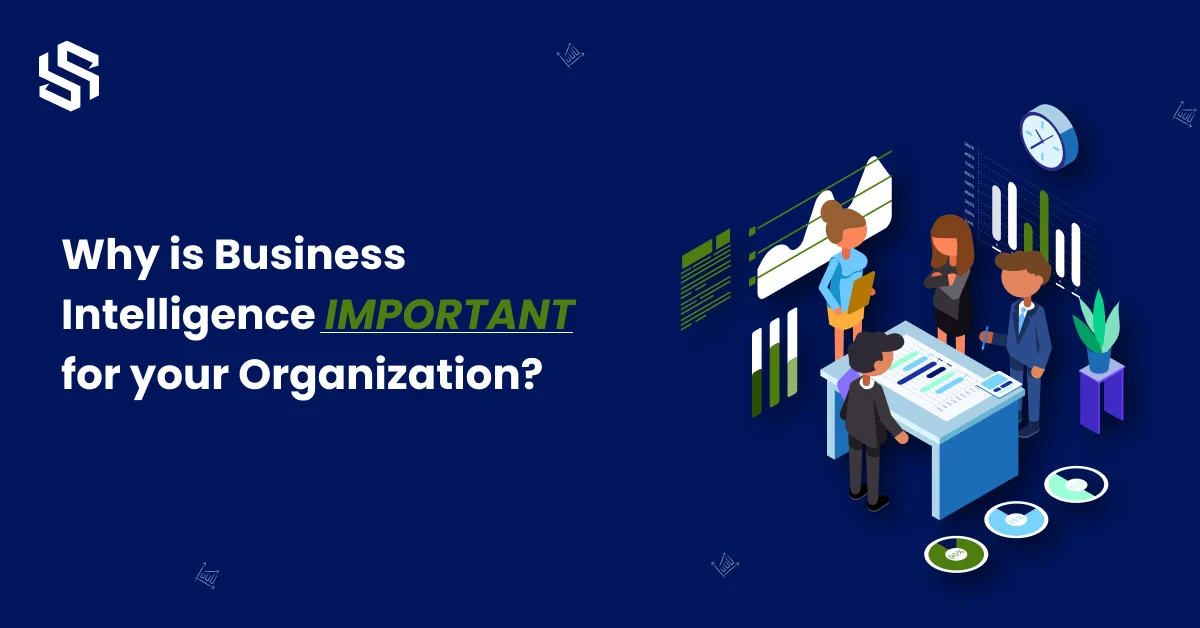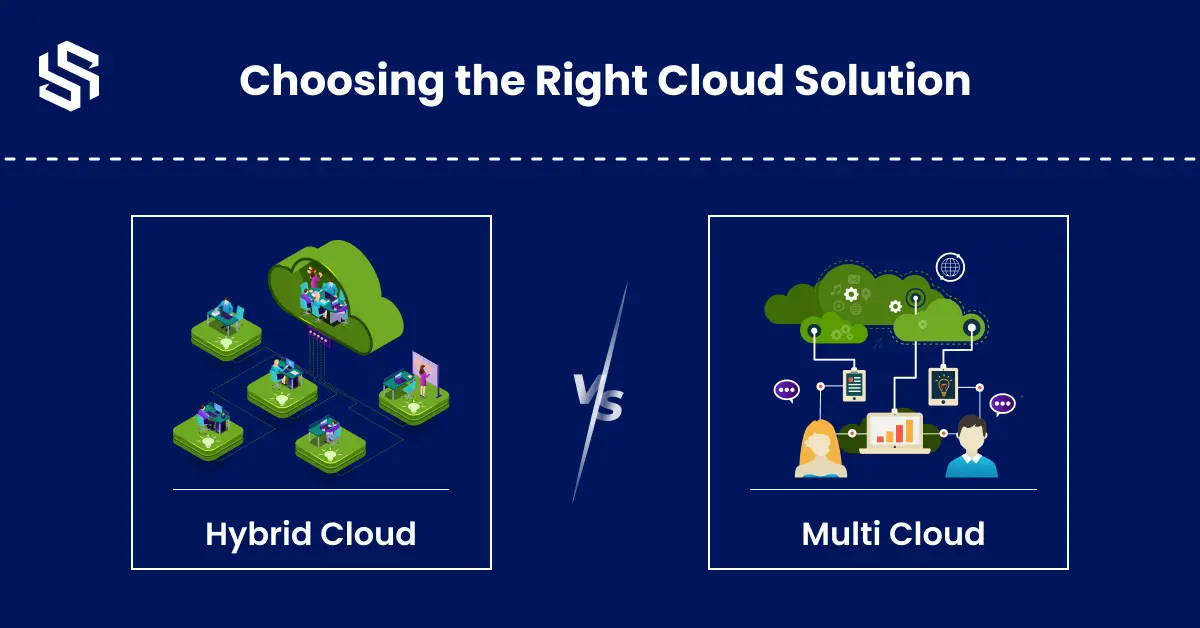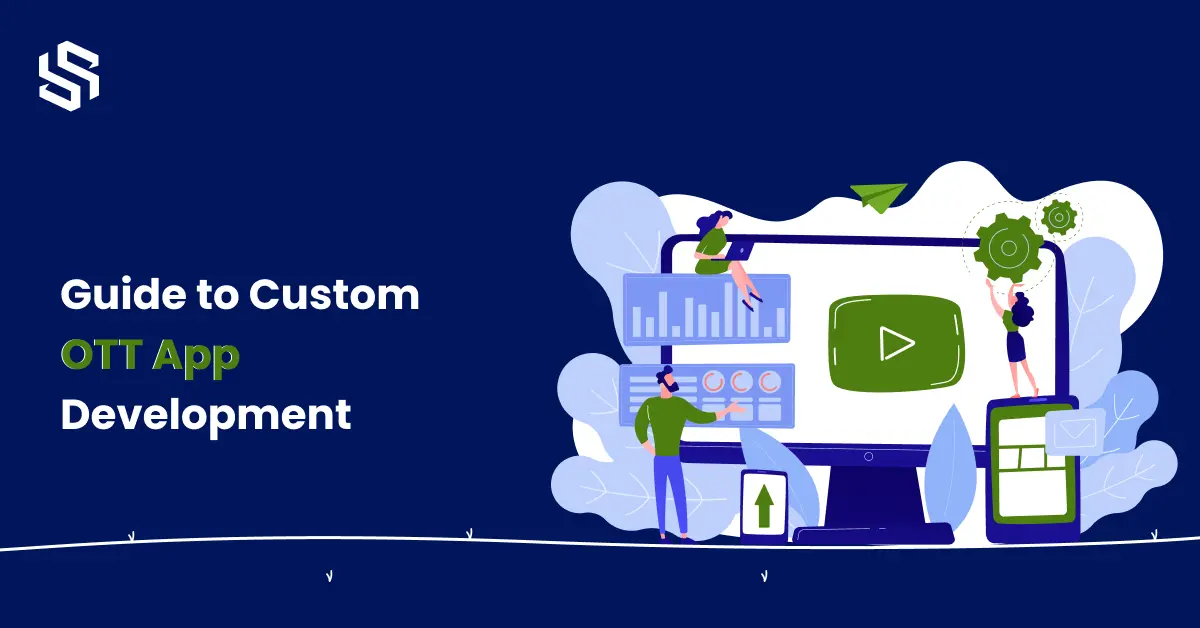A notable transformation is happening with the large scale take-up of artificial intelligence(AI) across industries. AI has different uses, starting from cost reduction to better customer assistance and automation of simple tasks in business. In addition, ground-breaking technologies such as generative AI have expanded deeper the horizons of data-driven decision making offering creative answers to intricate issues.
Companies that adopt AI analytics solutions are expected to increase their revenue by 40% by 2025. AI has revolutionized data analysis, decisions-making and growth techniques across various sectors and is a game-changer. By leveraging machine learning and intelligent automation as forms of AI development services, firms gain competitive advantage and open up new opportunities.
Key Takeaways for AI analytics for businesses
- Implementing AI analytics solutions can lead to a potential revenue increase of up to 40% by 2025.
- AI development services, including machine learning and intelligent automation, are transforming the way businesses analyze data and make decisions.
- AI analytics has diverse applications across industries, including healthcare, finance, retail, and manufacturing.
- Real-world examples demonstrate the effectiveness of AI analytics in driving business success.
- Choosing the right AI development services provider is crucial for achieving optimal results in AI application development.
Unlocking Business Potential with AI Analytics
In today’s dynamic and data-centric business landscape, the integration of AI analytics has become a cornerstone for success. Through cutting-edge AI development services and artificial intelligence solutions, businesses are not only transforming their operations but also making more informed decisions.
1. Empowering Decision-Making
AI analytics has the remarkable ability to translate vast amounts of raw data into actionable insights, driving business growth and success. By harnessing advanced algorithms and technologies, AI solutions providers enable businesses to uncover hidden patterns within their data, gaining a deeper understanding of their customers and market dynamics.
2. Enhancing Operational Efficiency
Beyond improving decision-making, AI analytics plays a pivotal role in enhancing various aspects of business operations. From supply chain management to customer support and marketing, AI solutions automate repetitive tasks, allowing employees to focus on strategic initiatives. Through the analysis of customer data, businesses can personalize their offerings, thereby enhancing customer satisfaction and loyalty.
3. Personalization and Customization
Businesses may now offer incredibly tailored experiences thanks to artificial intelligence (AI) analytics, which uses machine learning algorithms to adapt dynamically to shifting client preferences. This fine-grained comprehension of consumer behavior makes it easier to create personalized marketing plans, guaranteeing pertinent and interesting encounters with each and every consumer.
4. Predictive Insights
Predictive analytics powered by AI can improve entire corporate operations in addition to spotting market trends. AI analytics foresees shifts in consumer behavior and industry trends by analyzing historical data patterns, enabling firms to be proactive and reduce risks. Strategic decision-making is enhanced by this foresight, allowing businesses to stay ahead of the curve and take advantage of new opportunities.
5. Security and Fraud Detection
AI analytics is a valuable tool for spotting fraudulent activity in sectors like finance. AI systems provide dynamic security against cyber threats by identifying complex patterns indicative of fraudulent behavior through advanced algorithms and real-time monitoring. Businesses may bolster their security procedures and protect against fraudulent schemes by utilizing artificial intelligence (AI) in analytics.
6. Adaptability and Versatility
By incorporating both structured and unstructured datasets, AI analytics expands its application and provides thorough insights into consumer behavior, markets, and operations. This flexibility is especially useful in industries where data is available in a variety of formats, enabling more complex approaches to strategic planning and decision-making.
7. Optimizing Maintenance Procedures
By evaluating equipment sensors and historical data, firms can use AI to detect defects in machinery and anticipate maintenance requirements. By using predictive maintenance, equipment reliability is increased, operating efficiency is maximized, and expensive downtime is reduced.
In conclusion, the integration of AI analytics is essential for businesses aiming to thrive in today’s digital era. By leveraging advanced AI development services and solutions, businesses can unlock the full potential of their data, drive informed decision-making, and achieve long-term success in a rapidly evolving landscape.
Read More About Impact of Generative AI for Workplace Communications
Harnessing the Power of AI Analytics Across Industries

In today’s rapidly evolving business landscape, the integration of AI analytics is reshaping operations and driving innovation across various sectors. From healthcare and finance to retail and manufacturing, businesses are leveraging AI development services to gain valuable insights and stay ahead of the curve.
1. AI Analytics in Healthcare
AI analytics in healthcare is revolutionizing patient care, diagnosis, and treatment. By analyzing vast amounts of medical data, AI algorithms can detect diseases early, personalize treatment plans, and improve overall patient outcomes. For example, AI-powered systems analyze medical images to detect cancer in its early stages, enabling timely interventions and reducing the risk of misdiagnosis.
2. AI Analytics in Finance
The finance industry benefits immensely from AI analytics, empowering organizations to make data-driven decisions, mitigate risks, and enhance customer experiences. AI development services enable the creation of fraud detection systems, automate credit scoring processes, and provide personalized financial recommendations. These solutions increase operational efficiency, mitigate fraud, and enhance customer satisfaction.
3. AI Analytics in Retail
Retail businesses are leveraging AI analytics to gain deep insights into consumer behavior, optimize inventory management, and refine marketing strategies. AI-driven recommendation engines suggest products based on customer preferences, leading to increased sales and customer loyalty. By segmenting customers and delivering personalized shopping experiences, retailers can enhance customer satisfaction and drive revenue growth.
4. AI Analytics in Manufacturing
In the manufacturing sector, AI analytics is transforming production processes, supply chain management, and quality control. Predictive analytics can optimize production schedules, predict machine failures, and minimize downtime, leading to improved efficiency and cost savings. By harnessing AI-powered solutions, manufacturers can streamline operations and gain a competitive edge in today’s market.
Real-Life Examples of AI Analytics Implementation
Examples showcasing the diverse applications of AI analytics across various industries.
Retail:
- L’Oréal: Recommends personalized skincare routines based on AI analysis of facial images and skin concerns.
- Sephora: Uses AI chatbots to offer virtual consultations and beauty product recommendations.
- Target: Leverages AI for demand forecasting, optimizing inventory management and reducing out-of-stock scenarios.
Finance:
- JPMorgan Chase: Employs AI to detect and prevent money laundering activities, contributing to financial security.
- HSBC: Utilizes AI-powered tools to analyze creditworthiness and personalize loan offers for customers.
- BlackRock: Analyzes vast amounts of market data with AI to make informed investment decisions and manage client portfolios.
Manufacturing:
- Siemens: Leverages AI-powered predictive maintenance to prevent equipment failures and ensure smooth production operations.
- Boeing: Employs AI to inspect aircraft parts for defects, enhancing safety and quality control.
- Ford: Uses AI to personalize car configurations and predict customer needs, driving innovation and sales.
Agriculture:
- John Deere: Develops AI-powered tractors that autonomously navigate farmland, increasing efficiency and yield.
- Bayer: Utilizes AI to analyze soil conditions and recommend optimal fertilizer usage, promoting sustainable agriculture.
- HelloFresh: Employs AI to predict customer preferences and personalize meal kit deliveries, reducing food waste.
Education:
- Duolingo: Offers language learning personalized through AI algorithms that adapt to individual progress and learning styles.
- Khan Academy: Provides AI-powered practice problems and feedback, tailoring learning experiences to student needs.
- Purdue University: Utilizes AI-driven grading assistants to automate repetitive tasks, allowing instructors to focus on personalized feedback.
These examples highlight the vast potential of AI analytics to not only enhance existing processes but also create entirely new solutions in diverse industries. As AI technology continues to evolve, we can expect even more innovative and impactful applications to emerge across various sectors in the years to come.
Read More About Future of SaaS: Harnessing AI for Growth
Navigating Challenges in Implementing AI Analytics for Businesses
Artificial intelligence-driven data analytics implementation brings a number of intricate issues that call for thoughtful analysis and well-thought-out solutions. Let’s examine these issues and look into possible fixes:
Ensuring Data Privacy and Security
Data security and privacy issues are becoming more and more important as AI and data analytics gain traction. When businesses integrate AI into their operations, the utilization of massive datasets raises particular issues about misuse, unauthorized access, and data breaches. The difficulty is in defending this data against evolving cyberthreats. Building confidence with stakeholders and users depends on finding solutions to these problems, which calls for taking decisive action to strengthen data privacy and security protocols.
Integration Complexities and Compatibility
Integrating AI analytics into well-established corporate processes involves a number of complex elements. Since most companies’ present infrastructures run on numerous platforms and technologies, integration issues arise. This complexity could lead to data discrepancies, compatibility problems, and disruptions. In order to guarantee a seamless and harmonic integration into the organizational structure and to fully leverage AI analytics for businesses without interfering with ordinary operations, these concerns need to be handled.
Addressing Skill Gaps and Training Needs
The widespread application of this revolutionary technology is hampered by the dearth of skilled professionals in developing, implementing, and managing AI analytics systems. Since there is a greater need for specialized AI talent than there is talent accessible, there is a severe shortage. People in a variety of fields, such as data scientists and AI developers, are impacted by this difficulty.
Ethical Usage of AI Algorithms
To guarantee the ethical application of AI, it is imperative to address the complexities of bias, transparency, and potential misuse. The difficult element is developing algorithms and models that are impartial and free of biases.
Ensuring Data Quality and Accessibility
Ensuring data quality and accessibility is essential for the success of AI analytics initiatives. Challenges may arise from disparate data sources, incomplete or inaccurate data, and data silos within organizations.
Resource Allocation and Budget Constraints
Allocating sufficient resources, including budget, talent, and infrastructure, can be challenging for businesses looking to implement AI analytics. Limited resources may hinder the scalability and effectiveness of AI initiatives.
Regulatory Compliance and Legal Considerations
Adhering to regulatory requirements and navigating legal considerations is paramount in AI analytics implementation. Compliance with regulations such as GDPR, HIPAA, and CCPA requires careful attention to data handling practices and privacy protections.
Change Management and Organizational Culture
Managing organizational change and fostering a culture that embraces AI analytics can be challenging. Resistance to change, lack of buy-in from stakeholders, and cultural barriers may impede adoption and integration efforts.
Businesses may overcome obstacles to implementing AI analytics and optimize the benefits of AI in fostering creativity, efficiency, and competitive advantage by proactively addressing these issues and concerns.
Read More About Why Should Businesses Use Intelligent Applications?
Finding the Right AI Development Services

When it comes to harnessing the power of artificial intelligence (AI) for your business, choosing the right AI development services provider is crucial. The expertise, industry experience, and technological capabilities of your partner can significantly impact the success of your AI application development.
Expertise is a key factor to consider when selecting an AI solutions provider. Look for a company that has a team of highly skilled AI developers and data scientists who specialize in artificial intelligence development. Their deep understanding of AI algorithms, machine learning models, and data analytics techniques will ensure the quality and effectiveness of your AI solutions.
Industry experience is another important aspect to evaluate. An AI development services provider with experience in your specific industry will have a better understanding of the challenges and opportunities unique to your business. This industry knowledge allows them to tailor their AI solutions to meet your specific needs, resulting in more impactful and relevant outcomes.
Technological capabilities are also critical when choosing an AI solutions provider. Look for a company that utilizes state-of-the-art AI technologies and frameworks. They should have expertise in natural language processing, computer vision, predictive analytics, and other relevant AI domains. These technological capabilities will enable them to build sophisticated AI models and applications that deliver tangible business value.
Read More About Industry 4.0: Transforming Manufacturing with AI and IoT
Why Choose Syndell as Your AI Solutions Provider?
At Syndell, we are a leading AI solutions provider with a proven track record in delivering exceptional AI development services. With our team of expert AI developers and data scientists, we offer customized solutions tailored to your industry and business goals.
Our extensive industry experience allows us to understand the unique challenges and requirements of different sectors, such as healthcare, finance, retail, and manufacturing. By partnering with us, you can tap into our deep domain knowledge and leverage AI applications that truly transform your business.
Our robust technological capabilities, combined with our expertise in AI algorithms and machine learning models, enable us to deliver cutting-edge AI solutions. Whether you need AI-powered analytics, intelligent automation, or machine learning services, we have the expertise and tools to bring your vision to life.
Unlock the full potential of AI for your business by choosing Syndell as your trusted AI solutions provider. Contact us today to learn more about our AI development services and how we can help drive your business forward.
Hire Dedicated AI/ML Developers for Customized Solutions
When it comes to creating customized AI analytics solutions for your business, hiring dedicated AI/ML developers can offer a multitude of benefits. With their expertise and experience, these developers can tailor AI development services to meet your specific requirements, ensuring optimal results and maximum value.
One of the key advantages of hiring dedicated AI/ML developers is their specialized knowledge in machine learning services. These developers possess a deep understanding of machine learning algorithms and models, enabling them to implement cutting-edge solutions that deliver accurate and reliable insights from your data.
Moreover, dedicated developers provide the flexibility to adapt and refine AI analytics solutions as your business evolves. They can collaborate closely with you to understand your unique needs, and develop tailored approaches that align with your goals and objectives. This level of customization ensures that the AI development services provided are perfectly suited to address your specific challenges and opportunities.
By hiring dedicated AI/ML developers, you can also benefit from their full-time commitment to your project. They can work closely with your team, ensuring effective communication and smooth coordination throughout the development process. This level of dedication and focus results in faster turnaround times, increased efficiency, and a higher level of expertise applied to your AI analytics solution.
When exploring intelligent automation solutions, working with dedicated AI/ML developers is crucial to ensure seamless integration and implementation. Their understanding of intelligent automation and its application across various industries enables them to design and develop solutions that empower your business with the benefits of AI technology.
Overall, hiring dedicated AI/ML developers offers businesses the opportunity to leverage specialized expertise, flexibility, and tailored approaches for creating customized AI analytics solutions. With their knowledge and skills in machine learning services, these developers can unlock the full potential of intelligent automation and provide you with the competitive edge you need in today’s market.
Embracing AI analytics is no longer a choice but a necessity for businesses aiming to thrive in the digital age. Contact Syndell now for a free quote and get started on your journey towards harnessing the power of AI development services for sustainable growth and business transformation.












